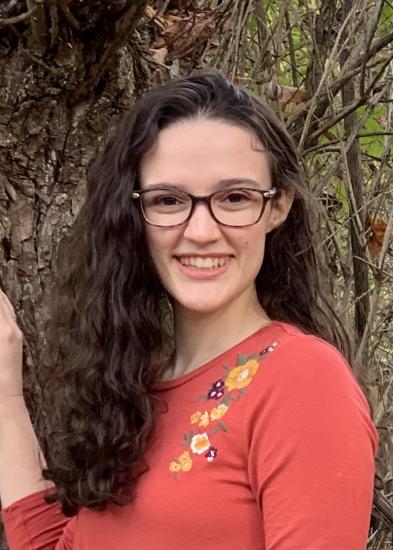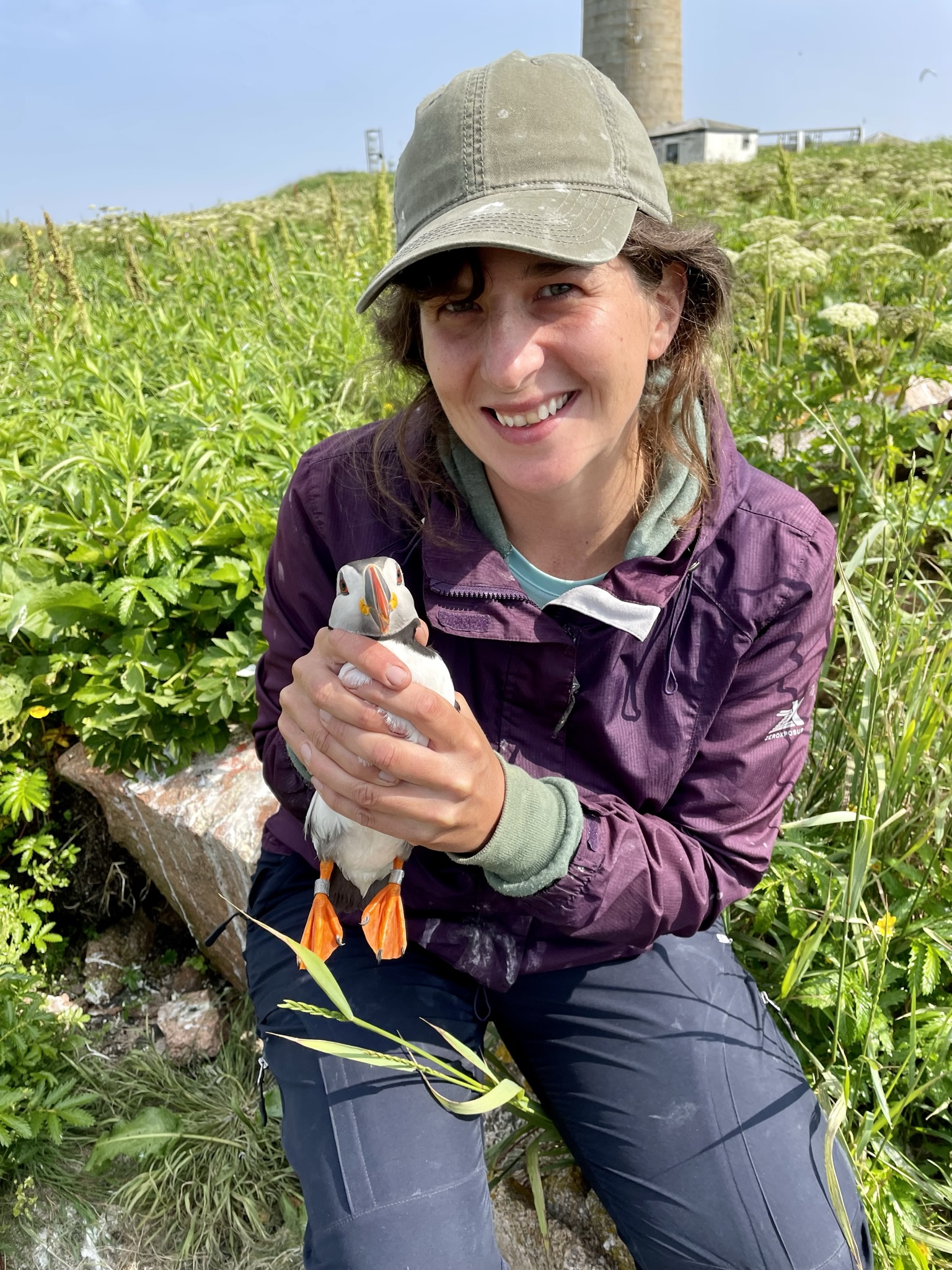26: TEAM - PA Ecology
- Page ID
- 69973
\( \newcommand{\vecs}[1]{\overset { \scriptstyle \rightharpoonup} {\mathbf{#1}} } \)
\( \newcommand{\vecd}[1]{\overset{-\!-\!\rightharpoonup}{\vphantom{a}\smash {#1}}} \)
\( \newcommand{\dsum}{\displaystyle\sum\limits} \)
\( \newcommand{\dint}{\displaystyle\int\limits} \)
\( \newcommand{\dlim}{\displaystyle\lim\limits} \)
\( \newcommand{\id}{\mathrm{id}}\) \( \newcommand{\Span}{\mathrm{span}}\)
( \newcommand{\kernel}{\mathrm{null}\,}\) \( \newcommand{\range}{\mathrm{range}\,}\)
\( \newcommand{\RealPart}{\mathrm{Re}}\) \( \newcommand{\ImaginaryPart}{\mathrm{Im}}\)
\( \newcommand{\Argument}{\mathrm{Arg}}\) \( \newcommand{\norm}[1]{\| #1 \|}\)
\( \newcommand{\inner}[2]{\langle #1, #2 \rangle}\)
\( \newcommand{\Span}{\mathrm{span}}\)
\( \newcommand{\id}{\mathrm{id}}\)
\( \newcommand{\Span}{\mathrm{span}}\)
\( \newcommand{\kernel}{\mathrm{null}\,}\)
\( \newcommand{\range}{\mathrm{range}\,}\)
\( \newcommand{\RealPart}{\mathrm{Re}}\)
\( \newcommand{\ImaginaryPart}{\mathrm{Im}}\)
\( \newcommand{\Argument}{\mathrm{Arg}}\)
\( \newcommand{\norm}[1]{\| #1 \|}\)
\( \newcommand{\inner}[2]{\langle #1, #2 \rangle}\)
\( \newcommand{\Span}{\mathrm{span}}\) \( \newcommand{\AA}{\unicode[.8,0]{x212B}}\)
\( \newcommand{\vectorA}[1]{\vec{#1}} % arrow\)
\( \newcommand{\vectorAt}[1]{\vec{\text{#1}}} % arrow\)
\( \newcommand{\vectorB}[1]{\overset { \scriptstyle \rightharpoonup} {\mathbf{#1}} } \)
\( \newcommand{\vectorC}[1]{\textbf{#1}} \)
\( \newcommand{\vectorD}[1]{\overrightarrow{#1}} \)
\( \newcommand{\vectorDt}[1]{\overrightarrow{\text{#1}}} \)
\( \newcommand{\vectE}[1]{\overset{-\!-\!\rightharpoonup}{\vphantom{a}\smash{\mathbf {#1}}}} \)
\( \newcommand{\vecs}[1]{\overset { \scriptstyle \rightharpoonup} {\mathbf{#1}} } \)
\(\newcommand{\longvect}{\overrightarrow}\)
\( \newcommand{\vecd}[1]{\overset{-\!-\!\rightharpoonup}{\vphantom{a}\smash {#1}}} \)
\(\newcommand{\avec}{\mathbf a}\) \(\newcommand{\bvec}{\mathbf b}\) \(\newcommand{\cvec}{\mathbf c}\) \(\newcommand{\dvec}{\mathbf d}\) \(\newcommand{\dtil}{\widetilde{\mathbf d}}\) \(\newcommand{\evec}{\mathbf e}\) \(\newcommand{\fvec}{\mathbf f}\) \(\newcommand{\nvec}{\mathbf n}\) \(\newcommand{\pvec}{\mathbf p}\) \(\newcommand{\qvec}{\mathbf q}\) \(\newcommand{\svec}{\mathbf s}\) \(\newcommand{\tvec}{\mathbf t}\) \(\newcommand{\uvec}{\mathbf u}\) \(\newcommand{\vvec}{\mathbf v}\) \(\newcommand{\wvec}{\mathbf w}\) \(\newcommand{\xvec}{\mathbf x}\) \(\newcommand{\yvec}{\mathbf y}\) \(\newcommand{\zvec}{\mathbf z}\) \(\newcommand{\rvec}{\mathbf r}\) \(\newcommand{\mvec}{\mathbf m}\) \(\newcommand{\zerovec}{\mathbf 0}\) \(\newcommand{\onevec}{\mathbf 1}\) \(\newcommand{\real}{\mathbb R}\) \(\newcommand{\twovec}[2]{\left[\begin{array}{r}#1 \\ #2 \end{array}\right]}\) \(\newcommand{\ctwovec}[2]{\left[\begin{array}{c}#1 \\ #2 \end{array}\right]}\) \(\newcommand{\threevec}[3]{\left[\begin{array}{r}#1 \\ #2 \\ #3 \end{array}\right]}\) \(\newcommand{\cthreevec}[3]{\left[\begin{array}{c}#1 \\ #2 \\ #3 \end{array}\right]}\) \(\newcommand{\fourvec}[4]{\left[\begin{array}{r}#1 \\ #2 \\ #3 \\ #4 \end{array}\right]}\) \(\newcommand{\cfourvec}[4]{\left[\begin{array}{c}#1 \\ #2 \\ #3 \\ #4 \end{array}\right]}\) \(\newcommand{\fivevec}[5]{\left[\begin{array}{r}#1 \\ #2 \\ #3 \\ #4 \\ #5 \\ \end{array}\right]}\) \(\newcommand{\cfivevec}[5]{\left[\begin{array}{c}#1 \\ #2 \\ #3 \\ #4 \\ #5 \\ \end{array}\right]}\) \(\newcommand{\mattwo}[4]{\left[\begin{array}{rr}#1 \amp #2 \\ #3 \amp #4 \\ \end{array}\right]}\) \(\newcommand{\laspan}[1]{\text{Span}\{#1\}}\) \(\newcommand{\bcal}{\cal B}\) \(\newcommand{\ccal}{\cal C}\) \(\newcommand{\scal}{\cal S}\) \(\newcommand{\wcal}{\cal W}\) \(\newcommand{\ecal}{\cal E}\) \(\newcommand{\coords}[2]{\left\{#1\right\}_{#2}}\) \(\newcommand{\gray}[1]{\color{gray}{#1}}\) \(\newcommand{\lgray}[1]{\color{lightgray}{#1}}\) \(\newcommand{\rank}{\operatorname{rank}}\) \(\newcommand{\row}{\text{Row}}\) \(\newcommand{\col}{\text{Col}}\) \(\renewcommand{\row}{\text{Row}}\) \(\newcommand{\nul}{\text{Nul}}\) \(\newcommand{\var}{\text{Var}}\) \(\newcommand{\corr}{\text{corr}}\) \(\newcommand{\len}[1]{\left|#1\right|}\) \(\newcommand{\bbar}{\overline{\bvec}}\) \(\newcommand{\bhat}{\widehat{\bvec}}\) \(\newcommand{\bperp}{\bvec^\perp}\) \(\newcommand{\xhat}{\widehat{\xvec}}\) \(\newcommand{\vhat}{\widehat{\vvec}}\) \(\newcommand{\uhat}{\widehat{\uvec}}\) \(\newcommand{\what}{\widehat{\wvec}}\) \(\newcommand{\Sighat}{\widehat{\Sigma}}\) \(\newcommand{\lt}{<}\) \(\newcommand{\gt}{>}\) \(\newcommand{\amp}{&}\) \(\definecolor{fillinmathshade}{gray}{0.9}\)Funding:
Ecology for All! was developed thanks to a grant from the Commonwealth of Pennsylvania's PA GOAL program. Funding for PA GOAL was provided by the Governor’s Emergency Education Relief Fund (GEER) by the state Department of Education (PDE) through the Office of Commonwealth Libraries (OCL). Additional funding was also provided by the Gettysburg College Johnson Center for Creative Teaching and Learning and the Office of the Provost's Open Educational Research grant initiative at the University of Pittsburgh.
Acknowledgments:
We thank Drs. Rebecca Ekert, David Outomuro Priede, and Marion Holmes for providing feedback on the book. At the University of Pittsburgh Cathy Barr, Lynn Rago, Matthew Rager and Vivian Lin provided support with the administration of the grant. At Gettysburg College, Katie Weigle, Laura Runyan, and Dawn Helsing provided administrative support and Janelle Wertzberger and Mary Elmquist provided expertise on open educational resources. Drs. Walt Carson and Martin Turcotte generously supported the involvement of graduate students on the project.
We are also incredibly thankful to all of the authors who have contributed to the open access resources that we relied on for this project. In particular, we benefited greatly from previously developed open textbooks including Biology 2e on OpenStax (by M.A. Clark, M. Douglas, and J. Choi), Conservation Biology in Sub-Saharan Africa (J.W. Wilson and R.B. Primack), and Spreadsheets Exercises in Ecology and Evolution (T.M. Donovan and C. Weldon).
Last, but certainly not least, we are grateful to the staff at Libretexts for building this open educational resource plaftorm and for their patience with our many, many emails throughout the development of this textbook.
| Nathan Brouwer |  |
Nathan Brouwer is a lecturer in the Department of Biological Sciences at the University of Pittsburgh, where he teaches intro biology, computational biology, biostatistics, and scientific writing. Prior to graduate school he served as a Peace Corps Volunteer with the National Agricultural Research Institute of The Gambia, West Africa. A first-generation PhD, he obtained his doctorate from the University of Pittsburgh studying the impacts of invasive species and overabundant deer on the native plants of western Pennsylvania. He did his post-doctoral work at the National Aviary of Pittsburgh with Dr. Steve Latta, where he modeled long-term monitoring data of tropical bird communities. |
| Hannah Connuck |  |
Hannah Connuck (she/her), is an undergraduate student at Franklin & Marshall College (‘23), where she is head biology tutor and does research involving plant physiology and hydrology. She has a specific interest in tropical systems and climate in Costa Rican cloud forests. |
| Hayden Dubniczki |  |
Hayden Dubniczki worked on Ecology for All! while an undergraduate student at Gettysburg College, where she earned a BS in Environmental Science. She is pursuing a Master of Environmental Management at Duke University's Nicholas School of the Environment. Her program concentration is Coastal Environmental Management. |
| Natasha Gownaris |  |
Natasha (Tasha) Gownaris (she/her) is an Assistant Professor of Environmental Studies at Gettysburg College. At Gettysburg, Tasha teaches Ecology, Marine Ecology, Marine and Freshwater Fisheries, and Oceanography. Her research focuses on seabird foraging ecology and diet and the response of these species to climate change. She earned her BS in Biology and Environmental Studies at Gettysburg College in 2009 and a PhD in Marine Sciences from Stony Brook University in 2015. Before joining the Gettysburg faculty, she spent three years as a postdoctoral researcher at the University of Washington, where she studied Magellanic penguin demography and chick growth. |
| Aaron Howard |  |
Aaron Howard (he/him) is a teaching professor at Franklin & Marshall College. He teaches throughout the biology core including introductory courses and Biostatistics. He also teaches upper-level electives on evolution and ecological data science. Aaron earned a BS in Biology and Education from Grove City College and a PhD in Biology from Georgetown University with a research focus on pollination biology. Specifically, I study how floral display – the size, arrangement, color, etc. of flowers, influences pollinator behavior and plant reproduction. |
| Leah Nath |  |
Leah Nath is an Environmental Studies major at Gettysburg College (Class of '26), where she is interested in both the natural sciences and the humanities. She is working to edit and improve the accessibility of the Ecology for All! textbook and, as a student who has used the book herself, to add new learning tools for future students. |
| Castilleja Olmsted |  |
Castilleja (Cassie) Olmsted (she/her) is a graduate student at the University of Pittsburgh. Cassie conducts field research in Pennsylvania on the impact of natural and anthropogenic disturbance on forest soil seed banks, and on the role of traditional agriculture in preserving genetic diversity in South America. She double-majored in Biology and Spanish at Earlham College. |
| Dan Wetzel |  |
Dan Wetzel (he/his) is a lecturer and academic advisor in the Department of Biological Sciences at the University of Pittsburgh, where he teaches ecology, biostatistics, and scientific writing in addition to meeting with hundreds of biology students each year. Dan earned a PhD at the University of Kentucky and a MS degree from Georgia Southern University, both focused on understanding individual differences in levels of parental care in birds. While he still dabbles in biological research, he's currently studying the perception and usage of office hours in large introductory science courses. |
| Kyle Whittinghill |  |
Kyle Whittinghill is a lecturer and academic advisor in the Department of Geology and Environmental Science at the University of Pittsburgh. Kyle teaches Environmental Science, Environmental Geochemistry, Statistics for Earth, Ecosystem Modeling and Environmental Science and Communication in Geosciences. Kyle also an instructor for the University of Pittsburgh's summer Wyoming Field Studies in Ecology course. Additionally, Kyle has edited and written an introductory environmental science book on LibreText, Environmental Science. |
| Andy Wilson |  |
Andy Wilson (he/him/his) is an Associate Professor in the Environmental Studies Department at Gettysburg College, where he teaches Ecology, Wildlife Ecology, Conservation Biology, and Geographic Information Systems. A first-generation college student, Andy earned his PhD at Penn State, before which he worked as an ecologist for 10 years at the British Trust of Ornithology, a non-governmental organization. His research focuses on large-scale studies of birds, often involving large numbers of citizen scientists, and the use of new technologies in Ecology. |
| Taylor Zallek |  |
Taylor Zallek is a graduate student at the University of Pittsburgh where he studies the implications of rapid evolutionary change during experimental invasions on plant communities. Taylor has previously taught as a lecturer and lab instructor for undergraduate ecology courses in the University of Pittsburgh's Department of Biological Sciences. He has a Bachelor's degree from St. John's University and a Master's from Michigan Tech. |

